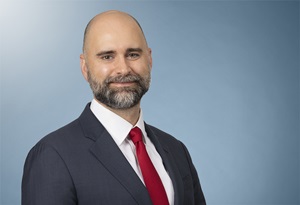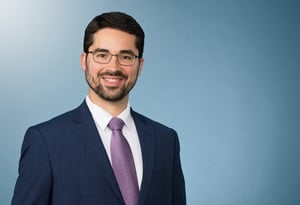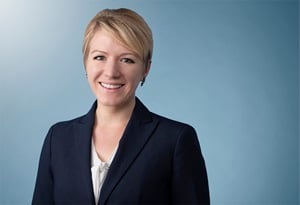DOJ Announces Corporate Compliance Policy Changes and Provides New Guidance on Compensation Clawbacks and Personal Device Messaging
In recent weeks, the U.S. Department of Justice (DOJ) has implemented significant changes to its corporate enforcement policies in an attempt to encourage companies to root out and voluntarily disclose corporate misconduct. The policy changes are the most recent of a series of changes to DOJ’s approach to corporate prosecution — an approach designed at increasing the number of corporate enforcement investigations, prosecutions and convictions both at the individual and organizational level.
Beginning with a September 2022 speech by Deputy Attorney General (DAG) Lisa Monaco, DOJ has continued its steady beat of the drum in enacting changes to its corporate enforcement policies with a laser focus on white collar criminal investigations and prosecutions. The past few months have seen multiple announcements by DOJ on this topic. First, in January 2023, Assistant Attorney General (AAG) Kenneth Polite, Jr. announced new initiatives regarding DOJ’s Corporate Enforcement Policy and reiterated DOJ’s recent focus on corporate compliance. Then, in late-February 2023, DOJ announced a new Voluntary Self-Disclosure (VSD) Policy for United States Attorney’s Offices (USAO), setting standards for assessing companies’ voluntary self-disclosure of misconduct and laying out specific potential benefits for such self-disclosure. Finally, in separate speeches last week at the American Bar Association (ABA)’s 38th Annual National Institute on White Collar Crime, DAG Monaco and AAG Polite announced a new pilot program (the Pilot Program) to incentivize companies to attempt to claw back compensation from employees who have committed wrongdoing, as well as those who supervised them. The new guidance from DOJ emphasizes the need for companies to closely review their compliance policies, carefully monitor for and investigate any potential misconduct, and promptly determine whether voluntarily disclosure to DOJ should be made. AAG Polite concluded by providing further guidance addressing employee communications on personal devices. The guidance is summarized below.
Assistant Attorney General Polite Reiterates DOJ’s Focus on Corporate Compliance
On January 17, 2023, AAG Polite delivered a speech announcing new initiatives that DOJ’s Criminal Division is undertaking regarding its Corporate Enforcement Policy and reiterating DOJ’s recent focus on corporate compliance. Polite noted that the purpose of the new initiatives is to provide specific, additional incentives to companies for voluntary self-disclosures, as well as for cooperation and remediation. Polite outlined new policy changes and emphasized DOJ’s continuing expectation that companies will “take extraordinary measures before, during, and after” a DOJ investigation to ensure the best outcome. Polite repeatedly emphasized that there would be very different outcomes for companies that do not self-disclose, meaningfully cooperate with investigations, or remediate.
Notably, Polite’s speech delivered three new policy changes that will impact corporate defendants involved in criminal investigations:
- First, DOJ will start with a presumption in favor of declination for a company that voluntarily self discloses misconduct and agrees to cooperate, in the absence of certain aggravating circumstance.
- Second, DOJ will make available a fine reduction of up to 75% off the low end of the Sentencing Guidelines fine range for companies that voluntarily self-disclose, fully cooperate, and timely and appropriately remediate, so long as the company is not a recidivist.
- Third, DOJ will make available a fine reduction of at least 50% off the low end of the Sentencing Guidelines range for companies that do not self-disclosure but later fully cooperate and timely and appropriately remediate, so long as the company is not a recidivist.
Polite also noted that declination may be an appropriate outcome when a company: (1) voluntarily self-discloses immediately upon becoming aware of the alleged misconduct; (2) the company has an effective compliance program and internal accounting controls in place at the time of the alleged misconduct; and (3) the company provides “extraordinary cooperation with [DOJ]’s investigation and undertook extraordinary remediation.” Polite repeatedly stated that the prosecution of individuals is DOJ’s “first priority” in addressing corporate criminal conduct. In resolving allegations of wrongdoing, he emphasized that DOJ believes that the revised policies “will, at the end of the day, further our ability to bring individual wrongdoers — the corporate executives, employees, and agents who engage in misconduct — to justice.”
Polite also repeatedly emphasized that DOJ expects companies “to take extraordinary measures before, during, and after a Criminal Division investigation” to earn the best possible outcome, signaling that DOJ will not tolerate minimal engagement. Polite did provide some concepts — immediacy, consistency, degree, and impact — which will help to inform DOJ’s approach to assessing what constitutes “extraordinary” cooperation. But, besides these somewhat vague principles, no concrete guidance was provided, with Polite notably stating “[i]n many ways, we know ‘extraordinary cooperation’ when we see it, and the differences between ‘full’ and ‘extraordinary’ cooperation are perhaps more in degree than kind.”
DOJ Issues Voluntary Self-Disclosure Policy for U.S. Attorney’s Offices
On February 22, 2023, DOJ announced the implementation of a new USAO VSD Policy.1 The policy, which was made effective immediately upon issuance, applies to all USAOs and “sets forth the criteria the USAO uses in determining an appropriate resolution for an organization that makes a Voluntary Self-Disclosure (VSD) of misconduct to the USAO, the USAO’s expectations of what constitutes a VSD, and clear and predictable benefits for such VSDs.” It also assures that companies that voluntarily self-disclose misconduct to the USAO pursuant to the policy will receive resolutions under more favorable terms than if the government had learned of misconduct through other means.
Under the new VSD Policy, if a company becomes aware of misconduct by employees or agents before that misconduct is publicly reported or otherwise known to DOJ, companies may disclose the misconduct to the USAO to allow the government to investigate and respond more immediately than without the disclosure. The policy instructs that prosecutors should consider such VSDs when determining the form and substance of a criminal resolution for companies, and it provides that companies that voluntarily self-disclose misconduct to the USAO pursuant to the policy will receive resolutions under more favorable terms than if the government had learned of the misconduct through other means. The policy also encourages companies to make voluntary self-disclosures to DOJ even if they believe it may be aware of the conduct through other means, and notes that prompt self-disclosures will be treated favorably, even if they fail satisfy all VSD criteria that the policy sets forth.
The VSD Policy sets forth the specific standard by which USAOs are to determine whether a company has made a voluntary self-disclosure and delineates the benefits a company will receive for meeting the standards of voluntary self-disclosure.
Specifically, to constitute a VSD under the policy, a disclosure must meet each of the following standards.
- The disclosure must be voluntary. “VSDs only occur when the disclosure is made voluntarily by the company,” and a disclosure will not be deemed a VSD where the company has a pre-existing obligation to disclose, such as pursuant to a regulation, contract or prior DOJ resolution.
- The disclosure must be promptly made. A disclosure will be deemed to be a VSD only when it is made: (1) before “an imminent threat of disclosure or government investigation”; (2) before the misconduct being publicly disclosed or otherwise known to the government; and (3) within a reasonably prompt time after the company becoming aware of the misconduct, with the burden being on the company to demonstrate timeliness.
- The disclosure must include all relevant facts that are known to the company at the time of the disclosure. Notably, the policy recognizes that a company may not be in a position to know all relevant facts at the time of the VSD, and thus provides that a company should make clear that its disclosure is based on a preliminary investigation and assessment of information.
- A company should preserve, collect, and produce relevant documents and information, and provide timely updates to the USAO, including appropriate updates based on any internal investigation.
- A company must also agree to pay all disgorgement, forfeiture and restitution resulting from the misconduct.
The VSD Policy further provides that, if a company meets the standards for voluntary self-disclosure, it is entitled to receive specific, tangible and notable benefits. Namely, it provides that — absent the presence of an aggregating factor2 — the USAO will not seek a guilty plea where a company has: (1) voluntarily self-disclosed in accordance with the criteria set forth above, (2) fully cooperated, and (3) timely and appropriately remediated the criminal conduct. In addition, where a company fully meets the VSD Policy, the USAO may choose not to impose any criminal penalty and, in any event, will not impose a criminal penalty that is more than 50% below the low end of the U.S. Sentencing Guidelines fine range. And, if the company demonstrates that, at the time of resolution, it has implemented and tested an effective compliance program, the USAO will not require the imposition of an independent compliance monitor.
If an aggravating factor is present, a guilty plea may not be required. Rather, the USAO is to assess the relevant facts and circumstances to determine an appropriate resolution. However, if the USAO determines that, due to the presence of an aggravating factor, a guilty plea is warranted, (1) a company that has voluntarily self-disclosed, fully cooperated, and appropriately remediated the criminal conduct will be accorded or recommended for a reduced sentence, and (2) just as with companies for which an aggravating factor is not present, if the company has demonstrated that it has implemented and tested an effective compliance program, it will not be required appointment of an independent compliance monitor.
DOJ Introduces Pilot Program Addressing Compensation Incentives and Claw Backs at ABA’s National Institute on White Collar Crime and Provides Further Guidance on Personal Devices
On March 2, 2023, in remarks at the ABA’s 38th Annual National Institute on White Collar Crime, DAG Monaco reiterated DOJ’s focus on corporate compliance, announcing a new Pilot Program on compensation incentives and claw backs. As a complimentary initiative to the VSD Policy, the Pilot Program includes two components aimed at ensuring that corporate employees and executives are personally invested in corporate compliance through direct and tangible financial incentives. First, corporate resolutions with DOJ will be required to include compliance-promoting criteria within the company’s compensation and bonus system. Second, DOJ will provide fine reductions to companies who seek to claw back compensation from corporate wrongdoers. To this end, while the resolving company will still be required to pay the applicable fine, that fine will be reduced by the amount of compensation that the company is attempting to claw back from culpable executives and employees. Finally, Monaco announced significant restructuring and resource commitments towards corporate resolutions for DOJ’s National Security Division. This will include the addition of more than 25 new prosecutors charged with investigating and prosecuting sanctions evasion, export control violations, and similar economic crimes by corporate actors, as well as the creation of the National Security Division’s first-ever Chief Counsel for Corporate Enforcement.
On March 3, 2023, during his remarks at the same conference, AAG Polite reiterated DOJ’s focus on ensuring that companies strive towards ethical behavior and the deterrence of corporate misconduct. Polite also provided additional information relating to the Pilot Program announced the day before by Monaco. First, Polite stated that the Pilot Program will be in effect for three years and will apply to all corporate matters handled by DOJ’s Criminal Division. Polite further noted that, in evaluating a company’s compliance program, DOJ “will consider numerous factors to determine how a company’s compensation system contributes to the presence – or lack – of an effective compliance program.” In addition, speaking to the Pilot’s Program’s new compliance-related criteria, Polite noted that DOJ prosecutors “will use their discretion to craft appropriate requirements based on the particular facts and circumstances, including applicable law,” and that DOJ’s “goal is to ensure that the company uses compliance-related criteria to reward ethical behavior and punish and deter misconduct.” Further, with respect to the Pilot Program’s fine reductions, Polite reiterated that companies “may receive an additional fine reduction if the company has implemented a program to recoup compensation and uses that program.” Polite further specified that DOJ will expect companies to use claw back programs not only for employees who engaged in wrongdoing, but also for “those who had supervisory authority over the employees or business area engaged in the misconduct, and knew of, or were willfully blind to, the misconduct.” Finally, Polite noted that, even if companies are unsuccessful in attempting to claw back compensation, as long as the efforts have been made in good faith, prosecutors will have discretion to award a fine reduction of up to 25% of the amount of compensation that had been sought.
In addition to his comments relating to the Pilot Program, Polite also addressed how DOJ will evaluate “a corporation’s approach to the use of personal devices as well as various communications platforms and messaging applications, including those offering ephemeral messaging.” Noting that DOJ expects companies to “adapt to the realities of modern life and update their policies and practices accordingly,” Polite stressed that, in evaluating a company’s compliance program, DOJ will consider how and to what extent a company’s policies governing electronic communications is tailored to its risk profile and specific business needs. Polite further noted that DOJ will consider whether the company’s policies and procedures adequately ensure that business-related electronic data and communications can be preserved and accessed. Finally, Polite noted that DOJ “will also consider how companies communicate the polices to employees, and whether they enforce them on a consistent basis.”
Conclusion
AAG Polite’s speech, the USAO VSD Policy, and the recently announced Pilot Program make clear that DOJ continues to be laser-focused on the issue of corporate compliance and self-disclosure of corporate wrongdoing. Under these new pronouncements, companies who have a strong culture of compliance and who investigate and self-disclose corporate misconduct should expect to receive a markedly better outcome than those who do not. As DAG Monaco noted in her March 2, 2023, speech, DOJ considers robust corporate compliance programs and forward leaning compensation programs to be “money well spent.”
With this in mind, companies should consider conducting a review of their compliance programs to ensure the programs adequately monitor for and identify criminal activity. Such proactive action will put the company in the best position if it finds itself in DOJ’s crosshairs. In addition, companies should ensure that they are in position to properly investigate and evaluate potential misconduct in a timely manner so that voluntary self-disclosures can be made if it is deemed necessary and appropriate to do so. To that end, it would be prudent to consult with outside counsel in a proactive manner to formulate a plan of action of what to do when it discovers corporate misconduct in its midst. Working with outside counsel can help ensure that the company maximizes its likelihood of receiving these benefits from DOJ and can assist in crafting disclosures and communications to meet DOJ’s “know-it-when-I-see-it” standard for extraordinary cooperation.
- See United States Attorney’s Offices (USAO) Voluntary Self-Disclosure Policy.
- The policy does not delineate all conduct that may constitute “aggravating favors.” However, it provides that “aggravating factors” that may warrant a guilty plea include misconduct that “poses a grave threat to national security, public health, or the environment”; “is deeply pervasive throughout the company”; or “involved current executive management of the company.”









